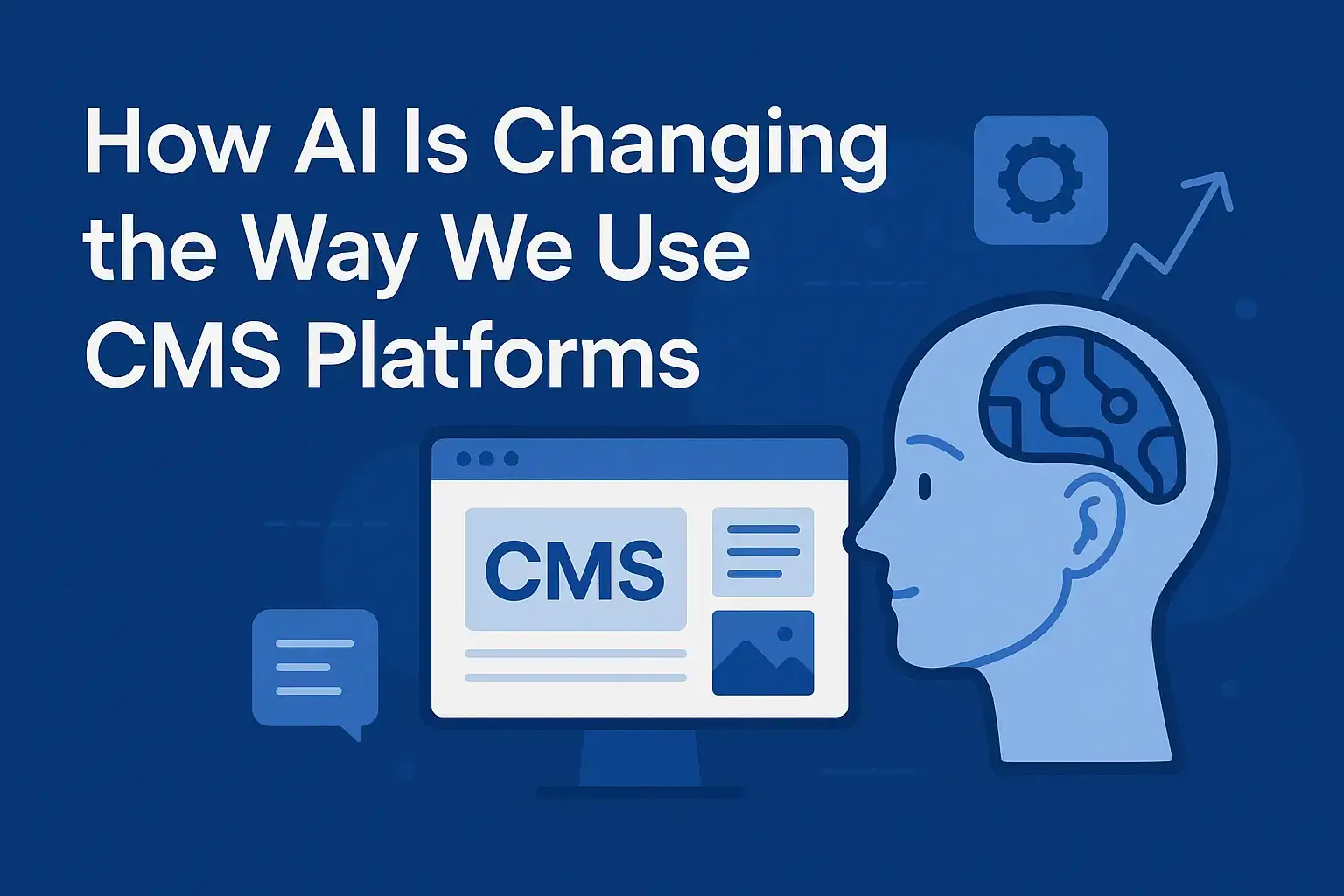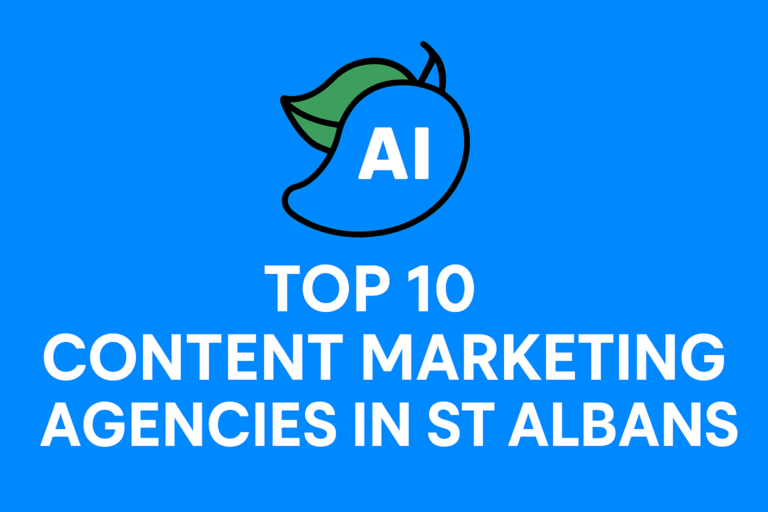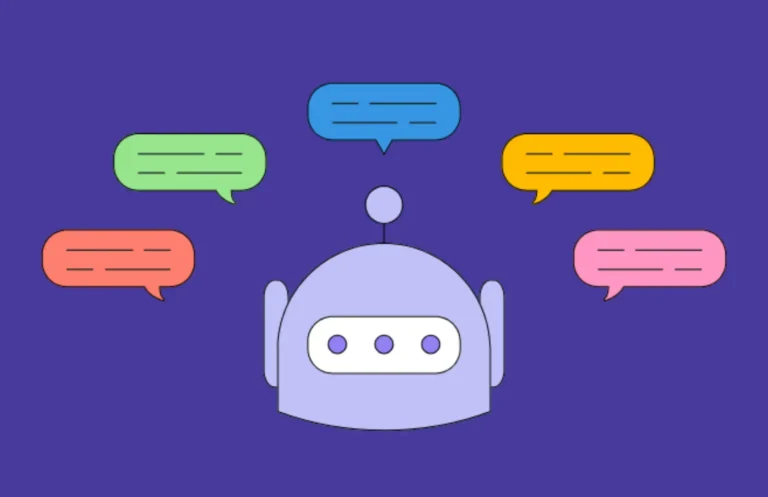Smarter Content, Less Effort: How AI Is Changing the Way We Use CMS Platforms
Content Management Systems, like many areas of technology, have evolved quite a bit from their origins in manually uploading and organizing content. Traditionally, CMS platforms were designed with restrictive structures, requiring teams to perform time-consuming workflows for even the most basic updates. Over time, the demand for dynamic and personalized content has grown, and AI is helping these systems accommodate.
Where AI Shows Up in Modern CMS Platforms
Content Suggestions and Optimization
One of the most helpful areas AI is enhancing CMS platforms is content suggestions and optimization. For example, let’s say you have a blog to help drive traffic to your website and convert clients. Modern tools have the ability to analyze your drafts and suggest recommendations on:
- Suggesting headlines that grasp the core themes, key takeaways, and target audience
- Generating multiple variations that are optimized for a specific goal, such as prioritizing SEO, CTR, and brand voice alignment
- A/B testing and performance prediction based on historical data and user behavior, identifying the highest-potential options
- Keyword suggestions that leverage datasets of search terms, trends, and user behaviors to provide the best results. Some tools may even have the ability to analyze competitor content
Smart Search & Tagging
To take it up a notch, AI integration into a CMS can enhance smart search and tagging. It goes beyond simple keyword matching and utilizes Natural Language Processing to create a more intuitive content library.
- Auto-tagging blog posts and articles based on detected topics and themes
- Image and video recognition that automatically adds relevant tags to the media—ideal for digital libraries and media-heavy websites
- Dynamic categorization of content that adjusts as new entries are populated, allowing for automatic placement in their intended areas and improving structure and navigation
- Enhanced internal search that understands synonyms and context, allowing any and all related content to appear when searching. For example, a “Customer Service” search would also return items with “Customer Support” labels
Personalized Content Delivery
AI improves personalized content delivery by analyzing user data to dynamically tailor what each visitor is served. These features help build the full profile of who the user is, their needs and wants, and the optimum way to approach them. Some examples of the data collected are:
- Real-Time Behavior Tracking
- Page views and time spent
- Clickstream data
- Search queries
- Element interaction
- Consumption patterns
- Device usage
- Location
- Localized content variations
- Product availability and pricing
- Promotions and events
- Currancy
- Past interactions
- Purchase history
- Support tickets created
- Email interactions
- Social media engagement
Automated Workflows & Publishing
An area where AI dramatically improves the CMS experience is workflows and publishing. Being that this is the main force behind most websites and platforms, intentionally automating stages in the content lifecycle can reduce errors and save time.
- Automated content approval flows allow AI to route drafts to the correct destination by identifying the content type, priority, and relevant team members
- Real-time language translations can enable content to be localized and published without having to hire a full team to manually update this information
- Automated version management allows the CMS to track edits, suggest improvements, and maintain clean versions to easily roll back, compare changes, or gather error and/or bug information
Common CMS Platforms Embracing AI
AI is rapidly making a presence in the CMS landscape, and the platforms below have been at the forefront of these advancements.
- Contentful has a robust set of features utilizing AI to help automate and streamline content workflows with features that help generate, translate, and optimize content. They also give users the ability to connect their content sources and use contextual AI to keep content on brand.
- WordPress, a crowd-pleaser, utilizes a variety of AI-powered plugins and tools. Yoast seamlessly integrates into WordPress and has features that provide recommendations, real-time feedback, and customized search results. Their more premium plans provide extensive options for keywords, can help generate titles and metadata, and offer smart internal linking. Bertha AI and Jetpack AI, also easily integrated into WordPress, help with overall copywriting, metadata, and image generation.
- HubSpot CMS uses AI to resolve customer queries around the clock, automate sales prospecting, and accelerate content creation.
Risks & Things to Watch For
AI enhancements in CMS platforms certainly come in clutch, but nothing is without its challenges. Be sure that your teams are aware of the confines and risks to ensure they are using the most appropriate tools for success.
Overreliance: While generating content with AI can drastically speed up production, there is a chance that the content may not be accurate or on brand. There is also a chance that the content might produce “hallucinations,” or content that seems totally plausible but is fabricated or nonsensical. Ensure rigorous fact-checking goes into all AI-generated content.
Legacy Integration: While these tools and plugins are designed for simplicity, sometimes an older, more complicated system may not support the APIs or infrastructures required for these tools. This could lead to delays, increased workload, or introduce opportunities for bugs. Have your team map out the integration requirements and ensure your current system is capable of supporting them.
Lack of Transparency in Decision Making: AI models are designed to make the best educated guesses and powerful recommendations. However, it is sometimes unclear why the AI has gone a specific route. This can make it hard to build trust in the outputs and explain them to stakeholders. Some tools offer explanations with their outputs, but if that is not an option, include internal confidence scores on outputs to help the teams better understand the recommendations being made.
Final Thoughts
AI is rapidly making changes to how we manage and deliver content, but it is important to remember it is not a replacement for content teams. AI is a support tool. The most effective CMS strategies have a healthy balance between human creativity and AI-powered efficiency. When used intentionally, the AI co-pilot helps with streamlining workflows, personalizing experiences, and uncovering insights that help teams move more efficiently.
While AI can help scale your efforts, the best strategies and visions come from the human creatives. Thread the needle and make content that truly resonates!







